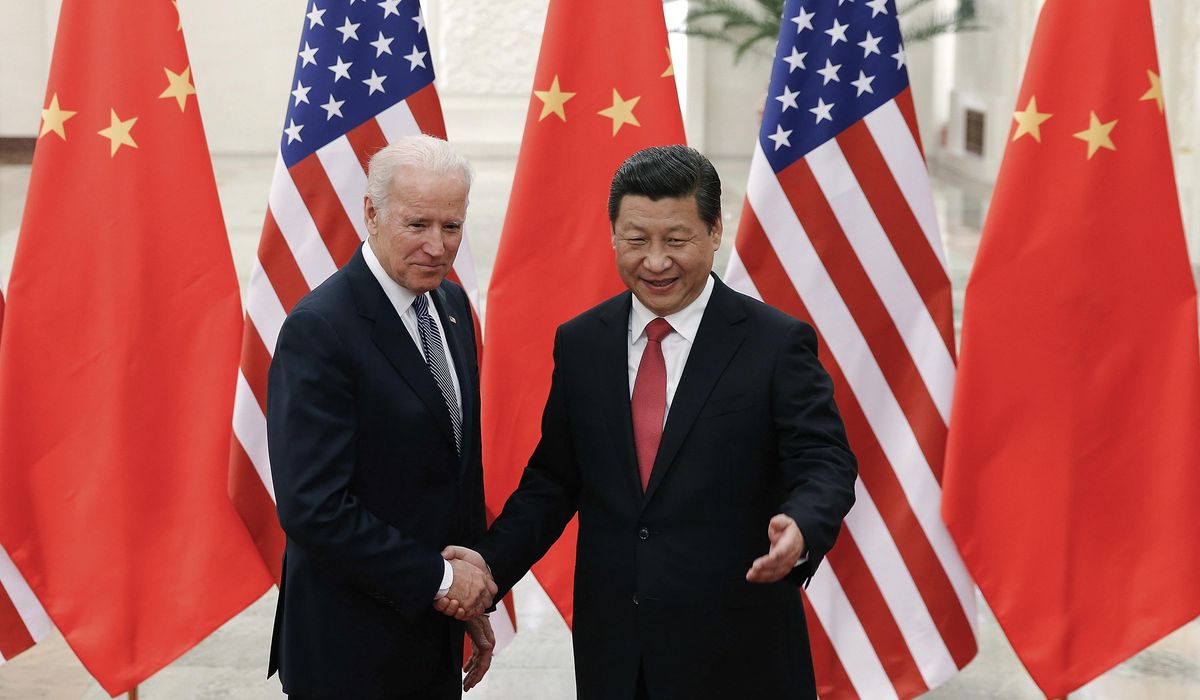Biden’s Foreign Policy in Context — Part 2
9. President Joe Biden gave his first major foreign policy speech (full text) during a visit to the Department of State. According to Eileen Donahoe, there were three significant themes in President Biden’s speech at the Department of State.
This was perhaps the most significant point. President Biden knows he faces a delicate task of balancing a sense of humility with a sense of urgency, when it comes to restoring U.S. leadership around the world.”
10. The Trump administration not only ceded U.S. leadership role on democracy and human rights — it contributed to the erosion of these core values domestically and abroad. In the aftermath of the 6 Jan 2021 assault on the U.S. Capitol, foreign adversaries were quick to comment on the need for the U.S. to focus domestically before criticizing others. As I see it, the media should be critical of Biden’s policies that policy experts don’t think will work (by using facts to prove a point of view) but we should not be useful idiots for the CCP to sow unnecessary discord.
11. The spectacle of an insurrection provided an easy opportunity for Russia and China to suggest that the U.S. should cancel plans to host a Summit on Democracy. President Biden recognizes that domestic and foreign leadership are intricately intertwined. In this speech, however, he signaled that he has no intention of retreating from global leadership on democracy and human rights, even as we have lots of work to do at home.” Biden noted, however, that there are certain areas, such as in trade and nuclear proliferation, where the U.S. can and should work with its adversaries.
12. In his speech, Biden named Tim Lenderking, a veteran career diplomat, as a new U.S. envoy for Yemen, a nod to the need for better diplomacy there. But while he committed to ending support for “offensive operations in Yemen,” few details were given on what exactly that will mean in practice. President Biden also said the U.S. would continue to help Saudi Arabia “defend its sovereignty and territorial integrity.” I also note that neither Biden nor Blinken appear to have spoken to their Saudi counterparts since taking office, at least from public readouts.
9. President Joe Biden gave his first major foreign policy speech (full text) during a visit to the Department of State. According to Eileen Donahoe, there were three significant themes in President Biden’s speech at the Department of State.
“First, President Biden sent a stark warning to our autocratic adversaries, most notably Russia and China, that they can expect the U.S. to confront them more directly and impose consequences for activities that undermine U.S. interests, particularly “grey zone” type activities that have escaped penalties in the past.
Second, he made the point that diplomacy is a primary vehicle for advancing U.S. interest and that his administration will invest significant resources in the international diplomatic realm, especially to address transnational challenges like pandemics and climate change.
Third, the president closed the speech with a subtle theme about the importance of American leadership on the world stage, not just to advance U.S. interests but to advance the interests of the democratic world. In effect, the president signaled that he will not retreat from the belief that the exercise of U.S. leadership contributes to global progress and good in the world.
This was perhaps the most significant point. President Biden knows he faces a delicate task of balancing a sense of humility with a sense of urgency, when it comes to restoring U.S. leadership around the world.”
10. The Trump administration not only ceded U.S. leadership role on democracy and human rights — it contributed to the erosion of these core values domestically and abroad. In the aftermath of the 6 Jan 2021 assault on the U.S. Capitol, foreign adversaries were quick to comment on the need for the U.S. to focus domestically before criticizing others. As I see it, the media should be critical of Biden’s policies that policy experts don’t think will work (by using facts to prove a point of view) but we should not be useful idiots for the CCP to sow unnecessary discord.
11. The spectacle of an insurrection provided an easy opportunity for Russia and China to suggest that the U.S. should cancel plans to host a Summit on Democracy. President Biden recognizes that domestic and foreign leadership are intricately intertwined. In this speech, however, he signaled that he has no intention of retreating from global leadership on democracy and human rights, even as we have lots of work to do at home.” Biden noted, however, that there are certain areas, such as in trade and nuclear proliferation, where the U.S. can and should work with its adversaries.
12. In his speech, Biden named Tim Lenderking, a veteran career diplomat, as a new U.S. envoy for Yemen, a nod to the need for better diplomacy there. But while he committed to ending support for “offensive operations in Yemen,” few details were given on what exactly that will mean in practice. President Biden also said the U.S. would continue to help Saudi Arabia “defend its sovereignty and territorial integrity.” I also note that neither Biden nor Blinken appear to have spoken to their Saudi counterparts since taking office, at least from public readouts.
Last edited:







/cloudfront-us-east-2.images.arcpublishing.com/reuters/5GXIE3VJL5MR7NIMWGM23ZA72A.jpg)

